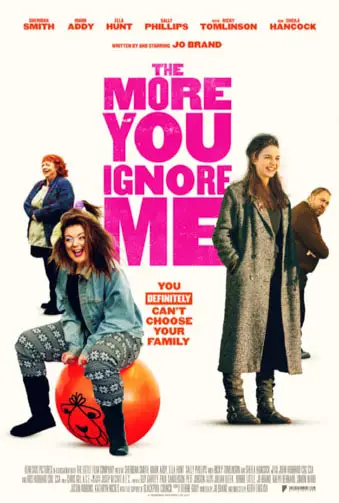
The More You Ignore Me greatly depends on how well Sheridan Smith portrays Gina and delivers a performance that accurately depicts mental illness. Smith is brilliant in each and every moment and finds unique but relatable ways to teach viewers about those who are emotionally unbalanced. Without giving too much of the plot away, Smith is asked to portray a middle-aged woman who borders on schizophrenic and has what can only be described as tantrums, both expectedly and unexpectedly, throughout the movie. Smith switches her mood so smoothly and elegantly that viewers can make connections between her and loved ones who suffer through similar difficulties.
While Smith is integral to the film, The More You Ignore Me is more the story of Alice and how she must navigate life in unexpected and unfair ways because her mother struggles with mental illness. And Hunt is good and believable as the teen in over her head. She, Addy, and Smith are brilliantly relatable, fun, energetic, and honest. The three have a connection that feels real and creates bonds between the film and viewers.

“…honest and heart-wrenching…”
While no one on the outside will ever fully understand what individuals with mental illness are dealing with, it seems reasonable to say that they understand enough to sympathize and wish them well. Brand makes sure to focus primarily on the effects these disabilities have on loved ones that are often lost in the shuffle and/ or swept under the rug. This makes Alice and Keith important to Gina’s story. As audiences see the teenager grow up before their eyes, tears become an unavoidable reality. The father-daughter duo fight for one another, often failing. The More You Ignore Me intertwines dark humor and drama to create an honest and heart-wrenching world dedicated to mental illness and those who deal with it.
The uncomfortability of the topics covered in the movie is necessary and keeps viewers in tune with what is happening in the lives of Alice, Gina, and Keith. The More You Ignore Me keeps audiences on the edge of their seats, forcing them to accept the harsh realities of mental illness, and encourages sympathy for those struggling with it (in any capacity) on a regular basis. While it might not be a good comedy, it is a great drama.

"…while it might not be a good comedy, it is a great drama."


